Current Newsletters
Kelso LID Newsletter Issue #4 - FINAL
Upcoming Events
None scheduled
Urban Runoff
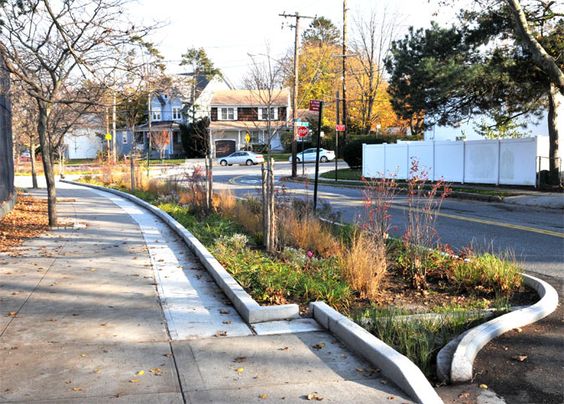 Urban stormwater runoff is a major cause of water pollution.
Urban stormwater runoff is a major cause of water pollution.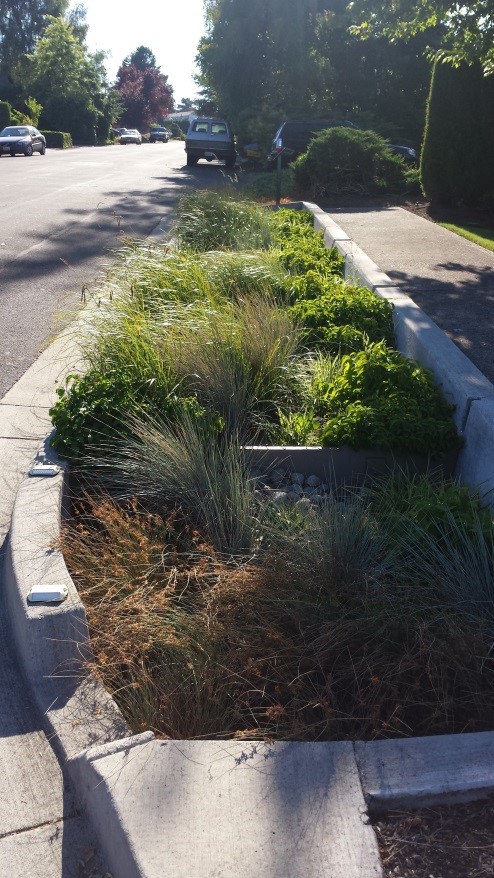
Prior to urbanization, when rain fell on undeveloped fields and forests, the water was absorbed and filtered by soil and plants.
After we built cities and suburbs, rain that fell onto roofs, streets, and parking lots cannot soak into the ground. Instead, stormwater drains through storm sewers and is discharged quickly into nearby water bodies. Along the way runoff picks up oil, trash, bacteria, and other pollutants. More and faster runoff can also cause erosion and flooding in urban streams, causing damage to habitat and property.
LID Concept
Low Impact Development (LID) is an approach to land development that mimics a site’s natural pattern of runoff. LID is a way to slow runoff down, spread it out, and soak it in.
LID emphasizes retaining trees, reducing impervious surfaces, and allowing runoff to soak into the ground close to where the rain falls. Dispersion spreads runoff over landscaped areas to slow it down and spread it out. Rain gardens and bioretention are vegetated depressions that allow water to soak into the ground. Small underground drywells also allow rain to soak into the ground. Small, distributed stormwater facilities slow runoff down and reduce the total amount of runoff that leaves the site.
Capturing runoff prevents it from collecting pollutants and carrying them to streams and rivers. Slowing runoff reduces erosion and flooding. LID protects stream habitat and water quality.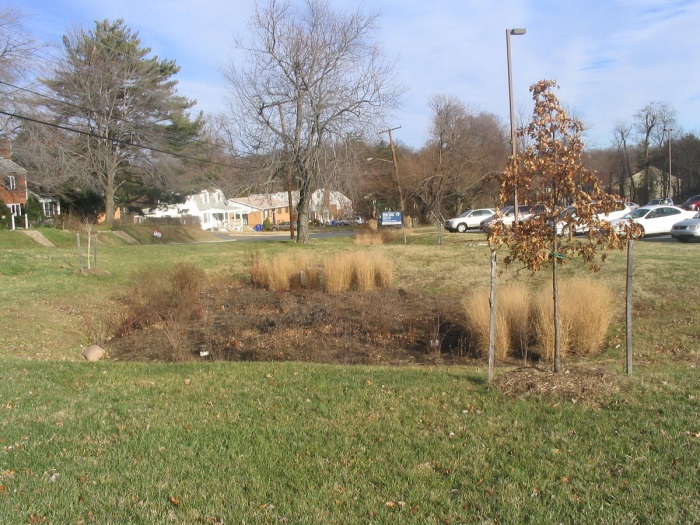
Regulatory Process
Most stormwater runoff in Kelso is conveyed through a network of pipes, ditches, catch basins and some water quality treatment facilities to the City’s drainage channels and rivers – the Columbia, Cowlitz, and Coweeman. This network is called a municipal separate storm sewer system (MS4).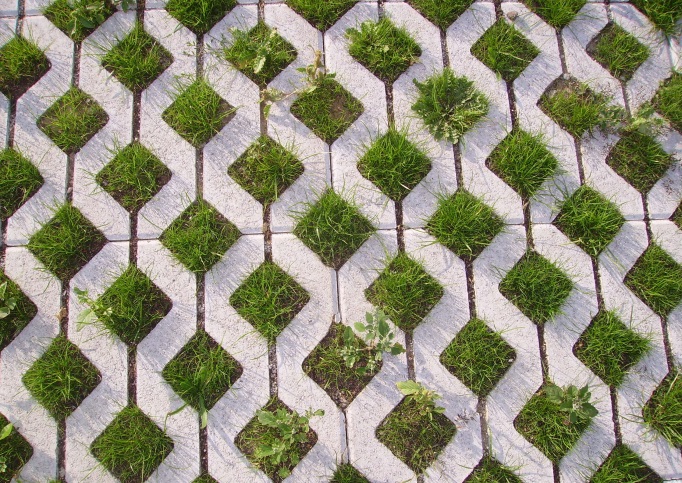
Kelso operates the MS4 under a permit from the Washington Department of Ecology as part of the federal Clean Water Act. Under the Permit, Kelso is required to incorporate LID into its development codes, update the Kelso Engineering Design Manual (KEDM), and adopt the Stormwater Management Manual for Western Washington to meet state standards for stormwater control.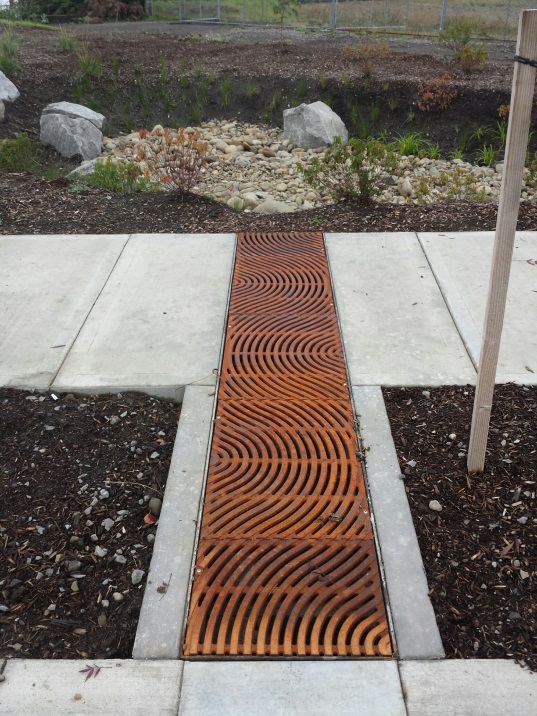
Schedule
Complete
- Review Kelso’s zoning, development codes, and KEDM for gaps in allowing LID
- Present “gap analysis” to Kelso Stormwater Advisory Committee (KSAC)
- Draft proposed updates to zoning, development codes, and KEDM
- Planning Commission meeting on Unified Development Code: January 10, 2017
- Open House: January 25, 2017 from 4 pm – 7 pm
- City Council Hearing on the Unified Development Code: February 21, 2017
- City Council Hearing on the Unified Development Code: March 21, 2017
- City Council Presentation on development code and KEDM: April 18, 2017
City Council Meetings are held at:
City Hall Council Chambers
Kelso City Hall
203 S Pacific Ave
Kelso, WA 98626
Documents and Links
Stormwater Management Manual of Western Washington
Phase II Western Washington Municipal Stormwater Permit
Summary of LID concepts in revised United Development Code
For More Information
Contact Catherine Morey, Senior Engineer
360-423-6590 x3323








